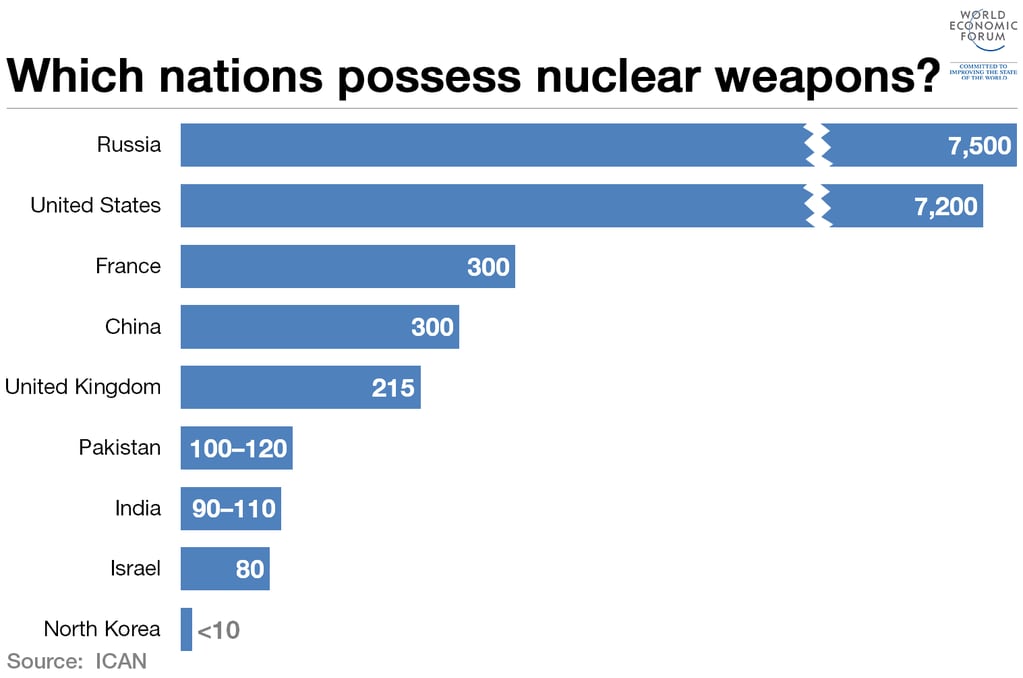Which countries possess nuclear weapons?

A child pays respect at the cenotaph at Hiroshima Peace Park
Image: REUTERS/Thin Lei Win
Stay up to date:
Nuclear Security
On 6 August 1945, the B-29 bomber Enola Gay dropped an atomic bomb on Hiroshima. The United States would drop a second bomb on another Japanese city, Nagasaki, three days later. At that time, those were the only two functioning nuclear weapons in the world.
Today, on the 70th anniversary of the bombing, there are 15,700 warheads in various countries, according to ICAN.
Nine countries possess nuclear weapons, while a further five house them, and 23 others are part of nuclear alliances.
Since the end of the Cold War, treaties have lowered the number of nuclear warheads, as shown in this timeline.
Have you read?
Why it’s time to ban the bomb
Are fears of a new nuclear arms race overblown?
How can we push for tighter nuclear security?
To keep up with the Agenda, subscribe to our weekly newsletter.
Author: Donald Armbrecht is a freelance writer and social media producer.
Image: A child pays respect at the cenotaph at Hiroshima Peace Park. REUTERS/Thin Lei Win
Don't miss any update on this topic
Create a free account and access your personalized content collection with our latest publications and analyses.
License and Republishing
World Economic Forum articles may be republished in accordance with the Creative Commons Attribution-NonCommercial-NoDerivatives 4.0 International Public License, and in accordance with our Terms of Use.
The views expressed in this article are those of the author alone and not the World Economic Forum.
Related topics:
Forum Stories newsletter
Bringing you weekly curated insights and analysis on the global issues that matter.
More on Resilience, Peace and SecuritySee all
Daniel Mahadzir and Natasha Tai
March 21, 2025
Robert Muggah
March 10, 2025
Sebastian Petric
February 21, 2025




